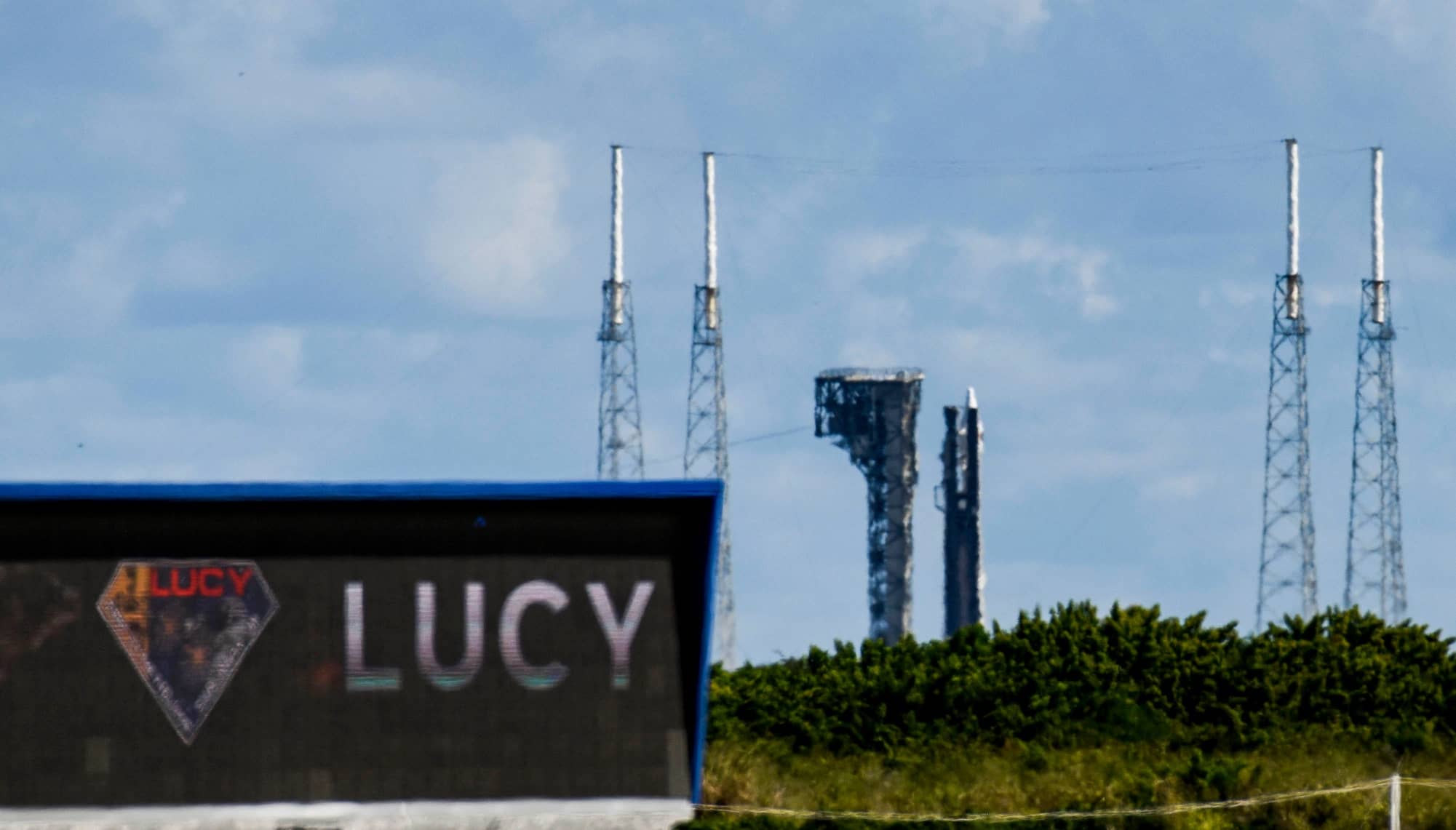
A United Launch Alliance Atlas V rocket is rolled to Launch Complex 41 at Cape Canaveral Space Force Station Thursday morning, Oct. 14, 2021. The rocket is carrying NASA’s Lucy spacecraft, scheduled to launch Saturday on a mission to study the asteroids around the planet Jupiter. Craig Bailey/FLORIDA TODAY via USA TODAY NETWORK Atlas V Lucy Rollout
Syndication: Florida Today
CAPE CANAVERAL, Fla. (AP) — A NASA spacecraft named Lucy rocketed into the sky with diamonds Saturday morning on a 12-year quest to explore eight asteroids.
An Atlas V rocket blasted off before dawn, sending Lucy on a roundabout journey spanning nearly 4 billion miles (6.3 billion kilometers).
Lucy is named after the 3.2 million-year-old skeletal remains of a human ancestor found in Ethiopia nearly a half-century ago. That discovery got its name from the 1967 Beatles song “Lucy in the Sky with Diamonds,” prompting NASA to send the spacecraft soaring with band members’ lyrics and other luminaries’ words of wisdom imprinted on a plaque. The spacecraft also carried a disc made of lab-grown diamonds for one of its science instruments.
In a prerecorded video for NASA, Beatles drummer Ringo Starr paid tribute to his late colleague John Lennon, credited for writing the song that inspired all this.
“I’m so excited — Lucy is going back in the sky with diamonds. Johnny will love that,” Starr said. “Anyway, if you meet anyone up there, Lucy, give them peace and love from me.”
The paleoanthropologist behind the fossil Lucy discovery, Donald Johanson, had goose bumps watching Lucy soar — “I will never look at Jupiter the same … absolutely mind-expanding.” He said he was filled with wonder about this “intersection of our past, our present and our future.”
“That a human ancestor who lived so long ago stimulated a mission which promises to add valuable information about the formation of our solar system is incredibly exciting,” said Johanson, of Arizona State University, who traveled to Cape Canaveral for his first rocket launch.
#77WABCRADIO #NASA
—Copyright 2021 Associated Press. All rights reserved. This material may not be published, broadcast, rewritten, or redistributed.If the article is written with material derived from or base upon AP sources/material, then this is the credit that must be used:















